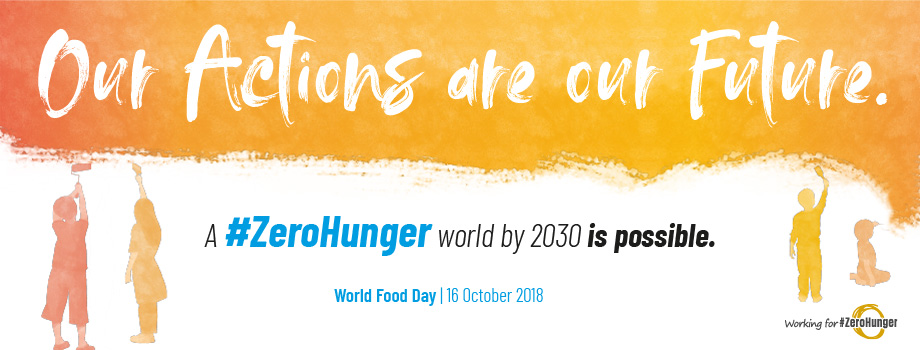Archive for month: October, 2018
Food safety hazards are increasingly being recognized as a major public health problem worldwide, yet among developing countries, there is limited understanding of the wider-ranging socio-economic costs of unsafe food and the benefits of remedial or preventative measures. This limited evidence base has led many countries to underinvest in food safety, or invest inefficiently in reaction to serious outbreaks of foodborne illness, other food scares, or trade interruptions. For many countries experiencing rapid urbanization and dietary changes, the growing complexity of food safety hazards is outpacing if not overwhelming prevailing food safety management capacity-both in government and in supply chains.
This report strengthens the economic case for increased public investment and other policy attention on food safety in developing countries. It is directed primarily at policy-makers, although researchers, development practitioners and food safety specialists will also find its content of value. By synthesizing and interpreting the available evidence on the economic costs of unsafe food in relation to both domestic markets and trade, the report positions food safety as an integral part of economic development and food system modernization. It goes on to provide guidance on ways in which public policy and investment can improve food safety awareness and behavior from farm to fork.
You can access the publication here.
22 - 23 October 2018
IFAD HQ, Rome (Italy)
The International Fund for Agricultural Development (IFAD) and Save the Children Italy are hosting an international conference entitled “Leaving no one behind – making the case for adolescent girls”, which will be held on Monday 22 and Tuesday 23 October 2018 at IFAD headquarters, Rome, Italy.
The conference will highlight the importance of investing in adolescents to ensure that they grow up and are educated in a healthy and safe environment to prevent the intergenerational cycle of malnutrition, food insecurity and poverty.
The purpose of this event aims at sustaining on-going momentum of identifying solutions to break the intergenerational cycle of malnutrition, and to contribute to the achievement of the global nutrition goals and objectives of the United Nations Decade of Action on Nutrition.
Institutions, practitioners, technical specialists, academia and civil society organizations will join the conference and contribute to the debate.
World Food Day 2018 will mark the 73rd anniversary of FAO’s founding. One of the most celebrated days in the UN calendar, events organized by FAO country offices, governments, local authorities and other partners in over 130 countries across the world will call for increased action to achieve Zero Hunger.
The official World Food Day (WFD) ceremony on 16 October at FAO headquarters will be an opportunity for leaders and key global players in the drive to achieve Zero Hunger and eliminate malnutrition, to remind the world that Zero Hunger is still possible if we can come together and take account of lessons learned, best practices and all evidence available. The campaign will raise the alarm over recently increased hunger figures and call on countries and other stakeholders to get back on track.
Working for Zero Hunger
After a period of decline, world hunger is on the rise again. Today, over 815 million people are suffering chronic undernourishment, according to the latest FAO report. Conflict, extreme weather events linked to climate change, economic slowdown and rapidly increasing overweight and obesity levels are reversing progress made in the fight against hunger and malnutrition.
Now is the time to get back on track. The world can achieve Zero Hunger if we join forces across nations, continents, sectors and professions, and act on evidence.
Zero Hunger moves beyond conflict-resolution and economic growth, taking the long-term approach to build peaceful, inclusive societies.
The World Food Day is a chance to show our commitment to Sustainable Development Goal (SDG) 2 – to end hunger and malnutrition.
Visit the World Food Day website for more information about events and activities.
15-20 October 2018, FAO, Rome, Italy
The Committee on World Food Security (CFS) is the foremost inclusive international and intergovernmental platform for all stakeholders to work together to ensure food security and nutrition for all. The CFS Plenary session is held annually and is the central body for decision-taking, debate, coordination, lesson-learning and convergence by all stakeholders at a global level on food security issues.
Useful information
- CFS 45 Provisional Agenda
- CFS 45 Draft Timetable
- CFS 45 Session Documents
- CFS 45 Webcast
- CFS 45 Photo Album
A few of the nutrition relevant side events include:
Improving Food Security & Nutrition Through Innovative Fish-Based Agri-Food Solutions: event co-organised by the World Bank Group (WBG) and UNSCN on Wednesday 17 Oct 18.00 - 19.30 CET, Red Room, FAO HQ (Rome). See flyer and final report.
Bringing policies to life. Translating global nutrition policy into country practice: event co-organised by the UN Network for SUN and UNSCN on Thursday 18 Oct 18.00 - 19.30 CET, Red Room, FAO HQ (Rome). See flyer and final report.
A full list of nutrition related side events is available below.
Latest Pics
 15th Africa Day for Food and Nutrition Security CommemorationNovember 4, 2024 - 11:08 am
15th Africa Day for Food and Nutrition Security CommemorationNovember 4, 2024 - 11:08 am Junior Parliament Engagement Meeting – Murewa DistrictNovember 4, 2024 - 11:05 am
Junior Parliament Engagement Meeting – Murewa DistrictNovember 4, 2024 - 11:05 am Nutrition Education SessionsOctober 11, 2024 - 9:13 am
Nutrition Education SessionsOctober 11, 2024 - 9:13 am ZAS 2024October 11, 2024 - 9:08 am
ZAS 2024October 11, 2024 - 9:08 am ZITF 2024October 11, 2024 - 9:04 am
ZITF 2024October 11, 2024 - 9:04 am
Follow us on Facebook
Contact Us!
Tel: +263 242 860 327
WhatsApp: +263 776 990 479
1574 Alpes Road
Harare
Zimbabwe
Email: info@fnc.org.zw
- Monday-Friday: 8am to 4:30pm
- Saturday: Closed
- Sunday: Closed


